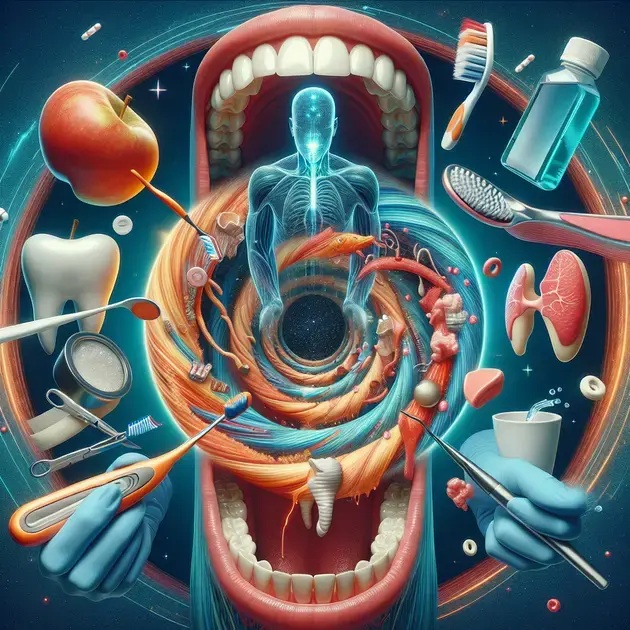When it comes to dealing with periodontitis, finding an effective medication is crucial for successful treatment. In this comprehensive guide, we will explore the latest advancements in medication options for periodontitis and how they can help improve oral health.
With the growing understanding of the link between oral health and overall well-being, it has become increasingly important to address periodontitis with the right medication. Stay informed and discover the most effective ways to combat this common oral health issue.

Effective Medication Options for Periodontitis
When it comes to managing periodontitis, it’s crucial to explore effective medication options that can aid in treating this condition. One popular choice is the use of antiseptic mouthwashes, such as Listerine or Crest Pro-Health, which can help reduce the buildup of plaque and bacteria in the mouth. These mouthwashes are readily available in most drugstores and online, making them convenient for regular use.
Another medication option for periodontitis is prescribed antibiotics, such as doxycycline or metronidazole. These antibiotics are often used in conjunction with other periodontal treatments to combat the infection and reduce inflammation. It’s important to follow your dentist’s instructions carefully when taking antibiotics to ensure their effectiveness.
In addition to oral medications, locally applied antimicrobials like Arestin may be recommended by your dentist. Arestin is a powder that is inserted into the periodontal pockets during a dental procedure to target bacteria directly at the site of infection. This can help improve the effectiveness of traditional periodontal treatments.
To access further information on these medication options and their usage in treating periodontitis, websites such as WebMD and the American Academy of Periodontology offer comprehensive resources and insights. By consulting these reputable sources, individuals can gain a better understanding of how these medications work and their potential benefits in managing periodontal disease.
Understanding the Link Between Oral Health and Well-Being
The connection between oral health and overall well-being is a critical aspect that individuals should not overlook. Maintaining good oral hygiene practices, such as brushing and flossing regularly, not only promotes healthy teeth and gums but also contributes to overall health. Research has shown that poor oral health can be linked to various systemic conditions, including heart disease, diabetes, and respiratory issues.
One essential step in understanding this link is to educate oneself on the impact of oral health on the body. Websites like the Mayo Clinic and the Centers for Disease Control and Prevention (CDC) provide detailed information on the importance of oral hygiene and its implications on general health. By learning about these connections, individuals can take proactive steps to prioritize their oral health and overall well-being.
Furthermore, scheduling regular dental check-ups and cleanings with a trusted oral healthcare provider is crucial in maintaining optimal oral health. Platforms such as Zocdoc and Healthgrades can assist in finding reputable dentists in your area and booking appointments conveniently. By staying proactive with dental care, individuals can safeguard their oral health and, in turn, support their overall well-being.
Combatting Periodontitis: Latest Advancements in Medication
With advancements in dental research and technology, new medications and treatment options for periodontitis continue to emerge. One notable advancement is the use of probiotics, such as EvoraPro, which can help restore the balance of good bacteria in the mouth and inhibit the growth of harmful bacteria that contribute to periodontal disease. These probiotics are available in various forms, including lozenges and oral supplements.
Another innovative approach to combatting periodontitis is the use of laser therapy, such as LANAP (Laser-Assisted New Attachment Procedure). This minimally invasive treatment utilizes laser technology to remove diseased tissue and bacteria from the periodontal pockets, promoting gum regeneration and healing. Platforms like the American Academy of Periodontology provide detailed information on the benefits of laser therapy for periodontitis treatment.
Stay updated on the latest advancements in periodontal medication by following reputable dental journals and organizations like the Journal of Clinical Periodontology and the American Dental Association. These sources offer insights into cutting-edge treatments and medications that can enhance the management of periodontitis and improve oral health outcomes.

**Understanding the Importance of Oral Health in Overall Well-Being**
The importance of oral health
Oral health is not just about having a bright smile; it is crucial for overall well-being. The mouth is the gateway to the body, and poor oral health can lead to various systemic health issues. Maintaining good oral hygiene helps prevent problems such as gum disease, tooth decay, and bad breath. Research has shown that oral health is linked to conditions like heart disease, diabetes, and even Alzheimer’s disease. Therefore, regular dental check-ups and proper oral care are essential for maintaining overall health.
Preventive measures
Preventing oral health issues involves a combination of proper brushing and flossing techniques, along with routine dental visits. Dentists recommend brushing teeth at least twice a day with fluoride toothpaste and cleaning between teeth daily with floss or interdental cleaners. Additionally, a balanced diet rich in fruits and vegetables and low in sugary and acidic foods can help maintain oral health. By following these preventive measures, individuals can reduce the risk of developing oral health problems and improve their overall well-being.
Impact on quality of life
Good oral health contributes significantly to an individual’s quality of life. Dental issues can cause pain, discomfort, and embarrassment, affecting one’s ability to eat, speak, and socialize. Poor oral health can also lead to self-esteem issues and a negative impact on mental health. By prioritizing oral hygiene and seeking regular dental care, individuals can enhance their quality of life and overall well-being.
Community impact
The importance of oral health extends beyond individual well-being to community health. Oral diseases are prevalent worldwide and can be costly to treat. By promoting good oral health practices within communities, the burden of oral diseases can be reduced, leading to improved overall health outcomes. Access to affordable dental care and oral health education are crucial factors in creating healthier communities. When individuals prioritize their oral health, the benefits are felt not only at a personal level but also within the broader community.
Future implications
As research continues to uncover the intricate connection between oral health and overall well-being, the significance of oral care will become increasingly recognized. Investing in preventive dental care and raising awareness about the importance of oral health can have long-term benefits for individuals and society as a whole. By understanding the importance of oral health in overall well-being, individuals can take proactive steps to maintain a healthy mouth and improve their quality of life.
**
Conclusion
**
Understanding the importance of oral health in overall well-being is crucial for maintaining a healthy lifestyle. Good oral hygiene is not just about a bright smile; it is the gateway to the body’s well-being. Research has shown the strong connection between oral health and systemic health issues like heart disease, diabetes, and Alzheimer’s disease. By prioritizing regular dental check-ups and proper oral care, individuals can significantly reduce the risk of developing serious health complications.
Proper preventive measures are key
Implementing proper preventive measures, such as brushing teeth twice a day with fluoride toothpaste and incorporating daily flossing, is essential for maintaining oral health. Alongside these practices, a balanced diet rich in fruits and vegetables plays a significant role in ensuring overall well-being. These combined efforts not only prevent oral health issues like gum disease and tooth decay but also contribute to an individual’s quality of life by reducing pain, discomfort, and social embarrassment.
Community impact and future implications
The impact of oral health extends beyond individual well-being to community health. By promoting good oral health practices within communities, the prevalence of oral diseases can be reduced, leading to improved overall health outcomes for society as a whole. Investing in preventive dental care and raising awareness about oral health can have long-lasting benefits. As research continues to highlight the connection between oral health and overall well-being, prioritizing oral care becomes increasingly important for enhancing quality of life and well-being.



